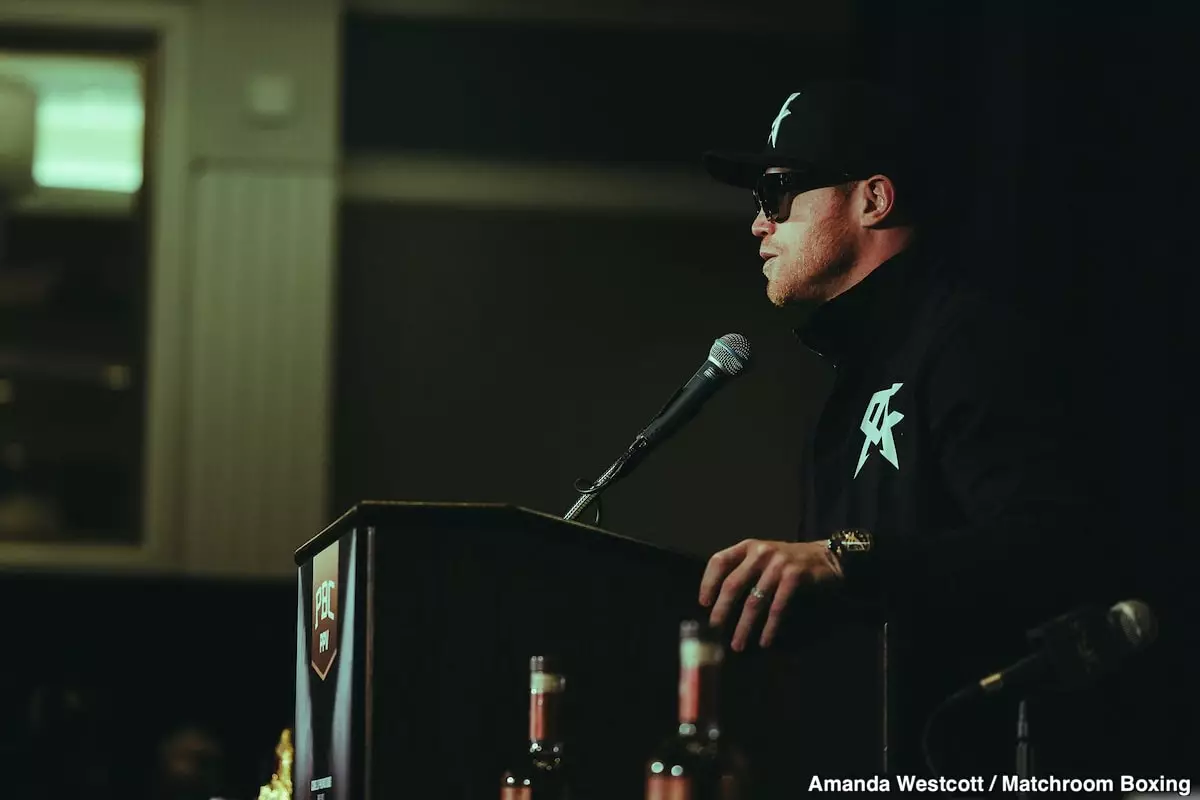The boxing world is abuzz with excitement as Canelo Alvarez prepares to face Edgar Berlanga, a bout scheduled for Mexican Independence Day and touted as a significant occasion for fans. With a record of 61 wins, 2 losses, and 2 draws, Alvarez, a unified super middleweight champion, expresses confidence that he will secure a knockout victory against Berlanga, who boasts an undefeated record of 22 victories with 17 knockouts. This analysis aims to delve into the intricacies of the matchup while reflecting on the weight of expectations placed upon both fighters.
Canelo Alvarez is acutely aware of the significance of fighting on a date steeped in cultural pride. The Mexican Independence Day event presents not just an opportunity for a title defense; it’s a celebration of heritage that Alvarez wishes to honor. His declaration of aiming for a knockout against Berlanga isn’t merely a statement to hype the fight; it’s also a desire to deliver an exciting performance that resonates with the audience. Yet, the implications of making such a bold prediction are significant.
Canelo’s previous fight against Jaime Munguia involved him taking the lead while possibly underestimating his opponent. By expressing that he “carried” Munguia for entertainment, Canelo opens a discussion about risk management in the ring. Although entertaining, this approach could be perilous, especially against a younger and heavier-handed fighter like Berlanga. In a sport where power can turn the tide with a single punch, Canelo must strike a balance between entertaining the crowd and ensuring his safety in the ring.
Interestingly, the fans seem to be more captivated by the undercard fights than the main event itself, which may speak volumes about Berlanga’s perceived capabilities against Canelo. Many believe that Canelo’s victory over Berlanga is a foregone conclusion, primarily owing to Canelo’s extensive experience and illustrious career. A criticism that arises from this situation is the potential for predictable outcomes. If fans believe Berlanga is simply a stepping stone, questions of whether he can make the fight competitive loom large.
Promoters and pundits, such as Eddie Hearn, draw attention to the dynamics of the fight. Canelo has selected opponents meticulously throughout his career, often opting for fighters whose styles align with his strengths rather than complicate them. Berlanga’s power is notable, but the assessments of his ability to handle counterpunching from a seasoned fighter like Canelo are vital. With a history of being hurt in sparring, Berlanga may face difficulties absorbing Alvarez’s punches while simultaneously executing his game plan.
The decision to fight Berlanga rather than a more challenging adversary like David Benavidez has not gone unnoticed. Canelo’s rationale—having faced many top fighters already—hints at concerns about upward mobility in his career. In boxing, each matchup is paramount, and by sidestepping high-stakes encounters against fighters who pose genuine threats, Canelo risks discouraging fans who crave competitive bouts.
As Hearn aptly points out, the potential for conflict exists between wanting an action-packed performance and the pragmatic need to secure a victory. Any calculated risks Berlanga takes may expose him to the very counterattacks that Canelo excels at delivering. For Canelo, a decisive win could reinforce his legacy, while failure to deliver may lead to increased scrutiny about his choices and future direction in the sport.
As the fight approaches, it becomes clear that this event encompasses more than just a title defense; it’s a critical chapter in Canelo Alvarez’s storied career, a test for Edgar Berlanga, and a barometer of how boxing fans engage with the sport. The expectations on Canelo are substantial, and while a knockout would certainly please spectators, the implications of this fight might extend far beyond the T-Mobile Arena in Las Vegas. As both fighters prepare for battle, the outcome could redefine their paths in the sport and challenge the narratives that surround them. In an arena where both glory and criticism intersect, Alvarez’s decisions will shape the future of his illustrious career while either solidifying or undermining Berlanga’s burgeoning reputation.

